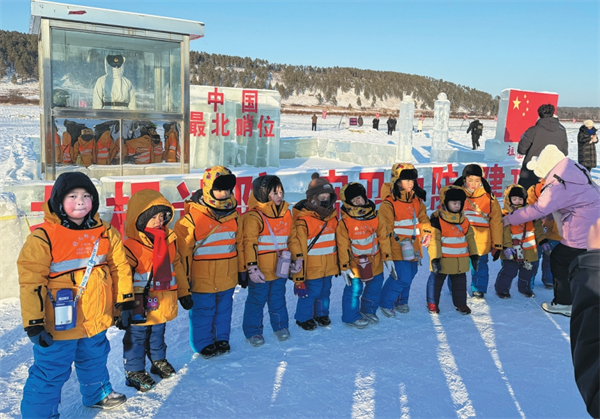Home>Harbin Today
Midnight tweets domain of the depressed: Sino-Australian research
Updated : 2014-08-06
By ( Xinhua )
A groundbreaking study by Australian and Chinese researchers has found a link between depression sufferers and the last night use of social media tools.
The joint study by the Australia National University (ANU) and China's Harbin Institute of Technology (HIT) analyzed data from Chinese social media site Weibo to predict potential depression among users.
The results, released Wednesday, suggest the lure of social media in the silence of night is a magnet for people who suffer from depression betraying a far higher level of activity on social media between 11 p.m. and 3 a.m. compared to other social media users.
"We found that in comparison to the control group, individuals with predicted Major Depression Disorder were more active on social media between 11 p.m. and 3 a.m.," said co-researcher Jin Han, a PhD student with the ANU National Institute for Mental Health Research.
"Secondly, these people have a specific linguistic pattern. They are more likely to use negative words, such as death, depression, life, pain, and suicide."
Han said she hoped the study could be used to help organizations which work with people suffering depression.
"The information could be provided to organizations such as Lifeline who support people with depression," she said.
"It could also be used to identify people who may be showing signs of depression but are less likely to reach out for help."
Charmaine Yabsley, a social media and health expert writing for national health insurer BUPA, said that there are growing concerns for Australians online.
"Social media can be a wonderful tool, helping us source information and communicate with friends around the world. But what happens when we use social networking sites to be, well, less social and physically active in real life? For many of us, social media has become part of our everyday lives. We tweet, blog, update and upload regularly -- for work and personal reasons," he said.
Around 80 percent of the Australian population is online, ranking the nation as having one of the highest Internet penetration rates in the world.
According to a recent Nielsen survey of 5,000 Australians aged 16 years and over, close to half of all online Australians participate in social media sites on an almost weekly basis, spending around 22 hours on it every week.
Almost 70 percent of Australians log on many times a day.
The upshot for youth in a technological world is that it is easy to feel non-existent without being online.
Han presented the findings of the study during the two-day Studying the Chinese Internet workshop jointly organized by the ANU College of Arts and Social Sciences and the ANU College of Asia and Pacific.
The other researchers are Pengyu Li, Dr. Guang Yu, and Xianyun Tian from HIT.
However, Chris Tanti, chief executive officer of Headspace ( Australia's National Youth Mental Health Foundation), believes social media can also play an effective supporting role in human mental health.
"The strong sense of community and belonging fostered by social networking services has the potential to promote resilience among young people," he said, "While there are concerns (about social media), the good news is that young people are developing the skills to cope."
Whatever the outcome, the collaboration between Harbin and Canberra is an excellent example of how higher learning centers of excellence can reach out across cultures to forward the discussion and provide further knowledge and protection for the complexities of youth across the social media-scape.
ANU's Associate Professor Robert Ackland, who oversaw the workshop, said the event had been enormously successful in bringing together people who also work at the intersection of computer science and China studies.
"One of the things the ANU is known for is its focus on Asian Studies, and I think we are very well positioned to be a leader in this field of study," he said.
Andrea Myles, founder of the China Australia Millennial Project, said Australia needs to make more of such cross-cultural research.
"Be it health, social media or the myriad challenges facing youth from China and Australia, if we co-create new solutions to issues facing both of our nations then we will fulfill our obligations to all young people looking to take us ahead in the ' Asian century'," Myles said.

Harbin ramps up childcare services
A new comprehensive service center for childcare in Harbin is expected to be finished by the end of the year.
-
Talent policies drive enterprise development in Harbin
Harbin's "30 New Talent Policies" represents an iterative upgrade to the talent policy system, helping attract and retain talent to bolster economic and social development.
-
Official website of 2025 Asian Winter Games goes live
Harbin, the host city of the 9th Asian Winter Games, has announced that the official website for the 2025 event has recently gone live.
-
Harbin launches measures to facilitate more foreign trade
In the first three quarters of 2023, the total import and export value of Heilongjiang province's goods trade hit 218.22 billion yuan.





